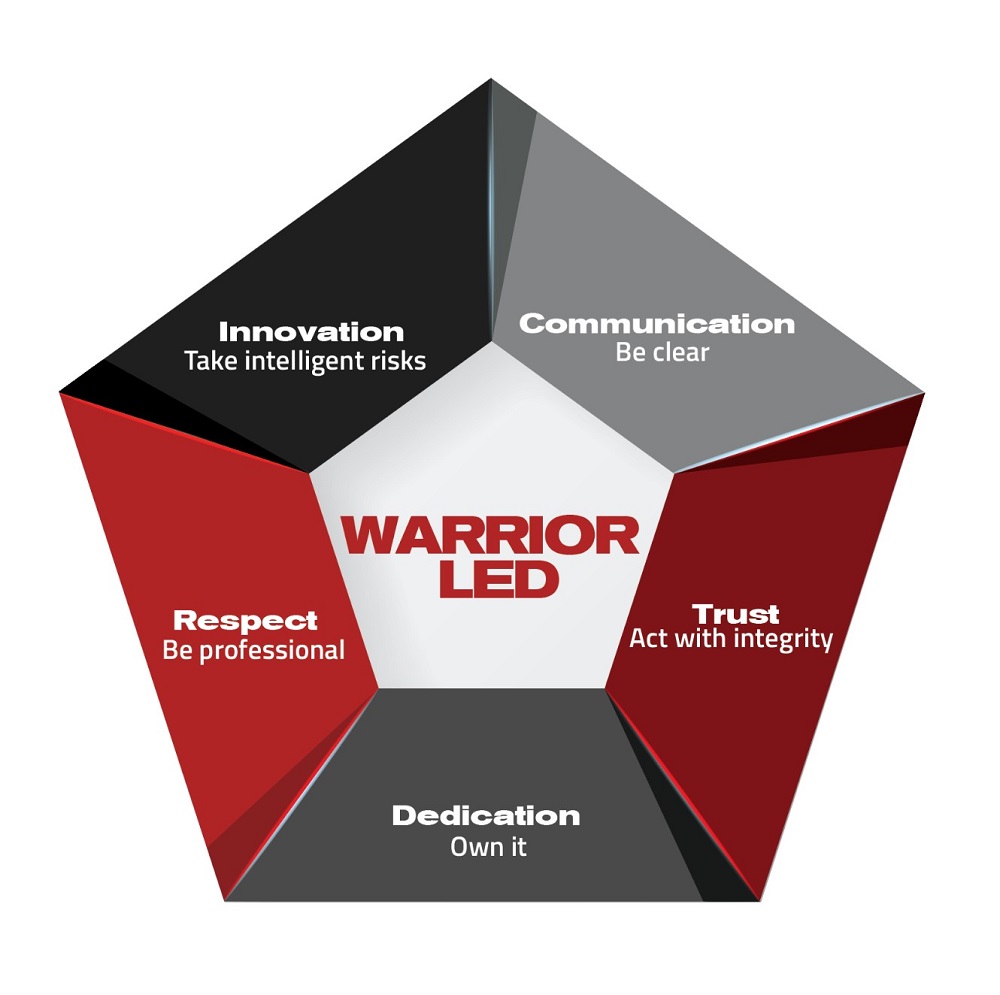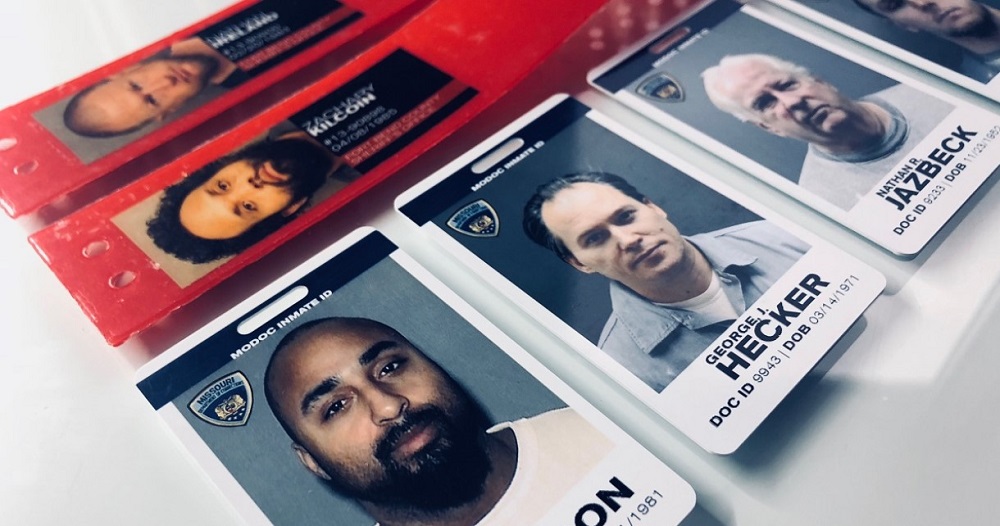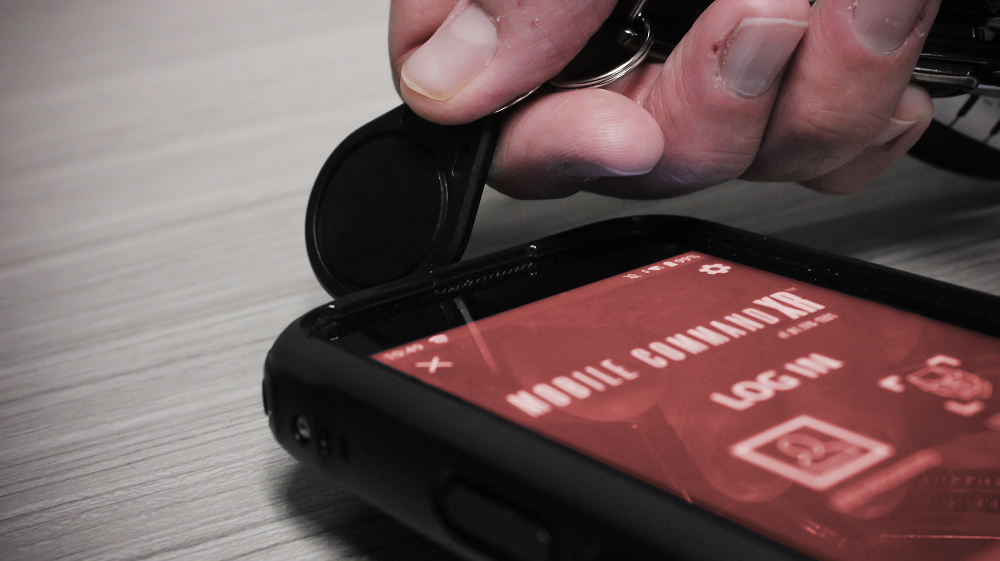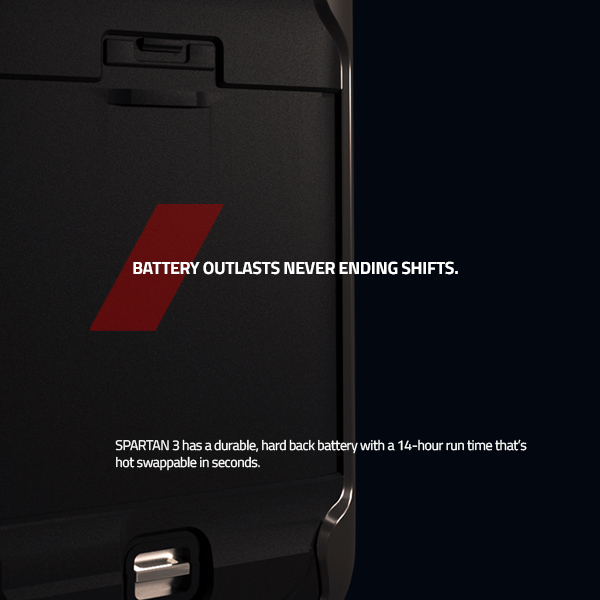10 Perfect Questions to Ask at a GUARDIAN RFID Demo
When you’re in the market for new goods and services, sitting through monotonous vendor product demonstrations can be quite dreadful. It’s just as much fun as watching oil paint dry. You have your list of the same questions, you hear the same elevator pitch over and over, and it gets quite redundant and boring after a while.
Presenters know that their first demonstration is likely their one and only time to make a good impression. Much like the hiring oral board for many corrections candidates, you try to filter out the candidates who have a strong moral compass and also fit into the culture. Just like on first dates, you want to avoid small talk and get to the substance. From an agency perspective, all you can hope for is to choose the right inmate tracking system that serves your needs.
So, what can you do to improve this process? What questions should you be asking during demos? This blog highlights the top ten questions to ask an inmate tracking vendor to get a grasp of their product, customer service, company culture, and answers to your questions.
1. What Makes Your Company Unique?
We hear this all the time, but we don’t mind. It’s a totally viable question to help you determine what candidates are a good fit. GUARDIAN RFID stands out from its competitors because it’s committed to helping corrections professionals create a safer, more secure, and more aware facility. GUARDIAN RFID manages, monitors, and tracks inmates in real-time while supporting integration with existing enterprise and third-party systems.
Detention facilities use GUARDIAN RFID to automate the documentation of security rounds, inmate movements, headcounts, activity logging, staff accountability, and so much more. Our customers receive the highest level of care from implementation to live system support. We are a corrections operations company to the core.
If you’re looking for a basic system that will log your watch tour and cell checks, then GUARDIAN RFID is not for you. There is a more cost-effective option out there to fit your needs. However, if you’re looking for the total package that is the ‘one stop shop’ for everything including cell checks, round compliance, meals, headcounts, inventory, supplies, and much more, then GUARDIAN RFID is a great fit.
Jeff JacksonAccount Manager | Jail Ops
2. What is the Most Important Thing to Your Company?
When asking what the most important “thing” is to a person or company, you can determine if they’re materialistic, idealistic, visionary, unrealistic, or impractical. At the end of the day, the answer to this question gives you insight into key traits that can predict the outcome of the relationship you would have with them and their team. In fact, many companies will answer this question with some thinly veiled response that suggests they are altruistic and their deep-down purpose is the customer. In reality, their bottom line dictates the decisions.
GUARDIAN RFID sees it a bit differently, as we believe in One Team One Mission - to defend those who risk their lives to protect ours. We value our customers as family. We use the terms “Warrior Led” and “Warrior Family” because we are not just a vendor. We are behind the officers who are working with the worst and most violent people in our society. For the sake of officer safety, our product lines and innovation are driven by our mission, vision, and core values (pictured below). We mean what we say when we share our motto, “Get your team home safe.”

3. Do You Work With Jails the Size of My Agency?
The inmate tracking solution you are seeking needs to custom-fit the unique size, scale, and purpose of your facility. A brief glimpse at the unique makeup of the United States criminal justice system emphasizes the many different facets of corrections facilities. There are almost 1,719 state prisons, 109 federal prisons, 1,772 juvenile correctional facilities, 3,163 local jails, and 80 sovereign American Indian jails, from no inmates to 10,000+, holding almost 2.3 million people. The real question stands: Can you show that you have experience working with a jail my size?
In short, yes. GUARDIAN RFID delivers a wide range of proven inmate management, inmate monitoring, and inmate tracking solutions for jails, prisons, and juvenile detention facilities of all sizes. It is a scalable platform with a track record of working with jails with an average daily population (ADP) of 2-5 inmates in Northwood, Iowa, to 8,000+ inmates in Dallas, TX. Our team often hears from smaller jails under 150 inmates that, “Our jail is too small to use inmate tracking.” But believe it or not, more than half of U.S. jails are “small” jails.
This requires small facilities to work harder, be smarter, and leverage all the tools at their disposal. GUARDIAN RFID can reduce the workload of officers and supervisors by automation of tasks that used to only be available to larger facilities. Small jails do everything that larger jails do, often with officers tasked with wearing multiple hats.
4. Can Your RFID System Be Cheated?
In corrections, there are three “C words” that every officer learns the first week on the job: care, custody, and control. Any inmate tracking system that plans to cover all three of these “C words” needs to seamlessly integrate with the jail management system. First, they need to confirm that the right inmate received constitutionally guaranteed rights. But then, all inmates need to be secured in the facility, which is the second “C” (custody) checkmark. Lastly, inmates need to be in their assigned living areas and be continuously checked on by officers, completing the third “C”.
Checking off all three “C words” isn’t a simple task. It takes a lot of work to make sure all of the pieces of the puzzle fit correctly. There are times when staff might get too complacent, busy, overwhelmed, or even “pencil-whip” a check that wasn't actually completed - which is a big no-no. Any competent leader lives by the motto: “Trust but verify.” To ensure this motto, jail and prison facilities need a reporting platform that is not easily tampered with.
GUARDIAN RFID encrypts the unique digital fingerprint of every RFID chip in hard tags, wristbands, and ID cards. Our platform also ensures that no inmate can ever be associated with more than one RFID wristband at a time. In addition, dual electronic and visual identification amplifies and simplifies the management, monitoring, and tracking of inmates. The ultra-rugged SPARTAN is built for a corrections environment and designed to report in real-time. There is no way an officer can pencil-whip a digital check because the only way to log a check is by being physically present.
While this might seem cumbersome, the reality is that the officer never has to go back to a paper log or workstation, allowing them to focus on their duties without juggling multiple roles. Every day, officers start their shifts wearing many hats- counselor, disciplinarian, medic, janitor, cook, and record keeper (and that's just before lunch!). This work is not often credited. With GUARDIAN RFID, all of those interactions are recorded and linked to every inmate the office provided services for.
Aside from the RFID system, we all know that some inmates can find loopholes to manipulate any system. For example, every correctional facility needs to perform checks. However, over 90% of correctional officers start their rounds at the exact same time, every time. This practice creates a predictable pattern of behavior that inmates can notice, allowing inmates to alter their actions to do something harmful to themselves, others, or property. But it doesn’t have to be this way.
We at the GUARDIAN RFID like to call this recognizable timeframe in which inmates may perpetuate all manner of mischievous: The Window of F*ckery. Randomizing your rounds enables you to close the W.O.F. (Window of F*ckery) as you are eliminating chaos by making sure your rounds aren’t predictable. GUARDIAN RFID’s Operational Intelligence turns data into actionable insight by utilizing real-time diagnostic dashboards to quickly assess how your facility is performing and to isolate and address operational issues immediately. The Rounds Compliance dashboard illustrates predictable or unpredictable behavioral patterns to close the Window of F*ckery and ensure the completion of staggered irregular rounds.
5. How Long Do Inmate Wristbands and ID Cards Last, and Which One Is Better?
The need to identify inmates correctly is a tale as old as time. And yet, somehow, sometimes mistakes are made, and it turns into a subject of variables and risk mitigation. According to the Bureau of Justice Statistics, the average length of stay in a pre-trial facility is 25 days, but we all know that is highly subjective based on location and type of crime. Most violent felony offenders will spend between sixty days and two years in custody. With that information, you need to know how much it will cost to put wristbands on all offenders in the facility and what the replacement rate will be based on durability and inmate turnover.
GUARDIAN RFID leverages RFID wristbands and RFID cards using Mobile Command to help automate activity logging faster. Does the system work without them? Yes, but the trade-off is decreased defensibility and inmate-specific logging becomes less efficient. The combination of Mobile Command and ID cards helps log inmate activities faster and more accurately. From meal passes and recreation offerings to program attendance, razor passes, court transports, med passes, work release programs, and more, the ability to capture events, activities, and interactions between the inmates and officers is paramount.
Our customers typically report wristbands lasting five to seven months depending on how often the offender manipulates them. ID cards have a longer life of 12-18 months, mainly because the inmate does not shower and sleep with it on 24 hours a day, like a wristband, but is secured to their wrist with a metal or plastic clasp. So, which should you be choosing, wristbands or ID cards? The short answer is that it depends on the agency and the inmate population. For example, Polk County, FL, found that inmates resisted the wristband because they felt “collared,” whereas the ID Card was something inmates could wear on display and feel as if they had ownership over something valuable.

6. What Are Key Fobs Used For?
Sometimes a preferred method of logging into a SPARTAN is by utilizing the Key Fob. This solution allows an easy login process and still holds a high level of defensibility. Thus, improving overall officer morale as staff who struggle with individually typing their username and password (such as elderly or large-handed staff) can simply login without the trouble of typing with their index fingers.
The Key Fob can easily be stored on a keychain or duty belt for quick access. Not only can officers not share their usernames and passwords, but the Key Fob can auto-log off to ensure someone doesn’t handle the device that’s currently logged under another user. For example, if a staff member conducts their rounds and assigned tasks but suddenly needs to hand off their SPARTAN, they just need to log out and the next staff member can place their Key Fob near the SPARTAN, logging them in seamlessly.

7. What's the Advantage of RFID?
RFID stands for “radio-frequency identification” and is known as a wireless system that identifies, tracks, communicates, and stores data. This technology has a distinct advantage over traditional barcodes or QR codes within the correctional industry, especially for inmate tracking. While barcodes and QR codes can be placed throughout the facility to be scanned with mobile devices, they cannot provide proof of presence as they both can be replicated.
Duplicate barcodes and QR codes can be printed and scanned in other locations allowing users the ability to record scans even while not physically at the documented location. RFID eliminates this issue by requiring that the mobile scanner be brought to RFID sensors that are securely mounted throughout the facility. There is no way to duplicate the RFID sensors, so you can be assured that the captured scan physically took place at the assigned location.
8. Do You Install Wi-Fi?
GUARDIAN RFID does not install Wi-Fi networks. Wi-Fi networks and their associated components must be installed by the agency, county IT, or an agency-provided vendor. Our solution works best when paired with an 802.11 wireless network accessed by Ubiquity wireless access points (WAP). Our SPARTANs also have the capability to connect to the network via an ethernet-enabled charging cradle in the event the Wi-Fi connection is not available. The most secure and effective configuration is the use of a DHCP Scope in the environment. We will provide MAC addresses for devices, as well as a whitelist document.
9. How Many SPARTANS Do We Need and How Long Do the Batteries Last?
The number of SPARTANs deployed will depend on several factors. The first items considered are the size of the facility and the type of supervision style employed within the facility. Typically, we see agencies deploy SPARTANs at each post within the facility such as direct supervision, housing units, intake or booking areas, and rovers and shift supervisors. Sometimes, we learn after the implementation process that some facilities find it useful to have multiple devices available for officers in more areas than originally planned.
There is typically no need to assign a SPARTAN to every staff member as they can easily be passed on and logged into as needed. However, we’ve seen better care given to the devices if they are officers assigned. Each SPARTAN comes with two batteries and a charging cradle. Each 4,350mAh battery is designed to provide up to 14 hours of life per charge, which can fluctuate with officer usage. An internal battery allows users to swap batteries on the SPARTAN without the loss of data or the need to power down and restart. The charging cradle can charge both the SPARTAN and the extra battery simultaneously.

10. How Secure are the SPARTANs?
Data transferred between the SPARTAN and our cloud-based servers use Secure Sockets Layer (SSL) 256-bit encryption. The data provided by the agency’s Records Management System (RMS), Offender Management System (OMS), or Jail Management System (JMS) is transmitted using Secure File Transfer Protocol (SFTP). We provide an API to make specific log data available if an agency requests data to be transmitted back from GUARDIAN RFD to their RMS/OMS/JMS.
GUARDIAN RFID utilizes a robust Mobile Device Management (MDM) solution allowing GUARDIAN RFID to support each SPARTAN remotely. This includes updates, auditing, tracking, as well as device security. Only approved applications can be added to the SPARTAN and only approved users have access to administrative privileges on the device.
When it comes to pinpointing the “best” vendor for your agency, you want to find one that meets (or exceeds) your needs. This includes the solution(s) to your issues, your customer service expectations, and of course, budget requirements. While you may need to attend several presentations to weigh your options and make the best choice, you now have the tools to streamline the process and make it more efficient. Having these ten questions as a framework allows you to not only find out the vendors’ knowledge behind the product, but also the passion behind their mission, vision, and values.
GUARDIAN RFID aims to protect all 480,00+ correctional staff defending America’s Thin Gray Line and make sure they get their team home safe by digitally transforming the care, custody, and control of every jail and prison in the country. If you’re ready for a demo or are interested in our products, implementation, pricing, or anything else, our team members are here to help and ready to answer any questions. Please reach out to us here or call us at 1-855-777-7343.

